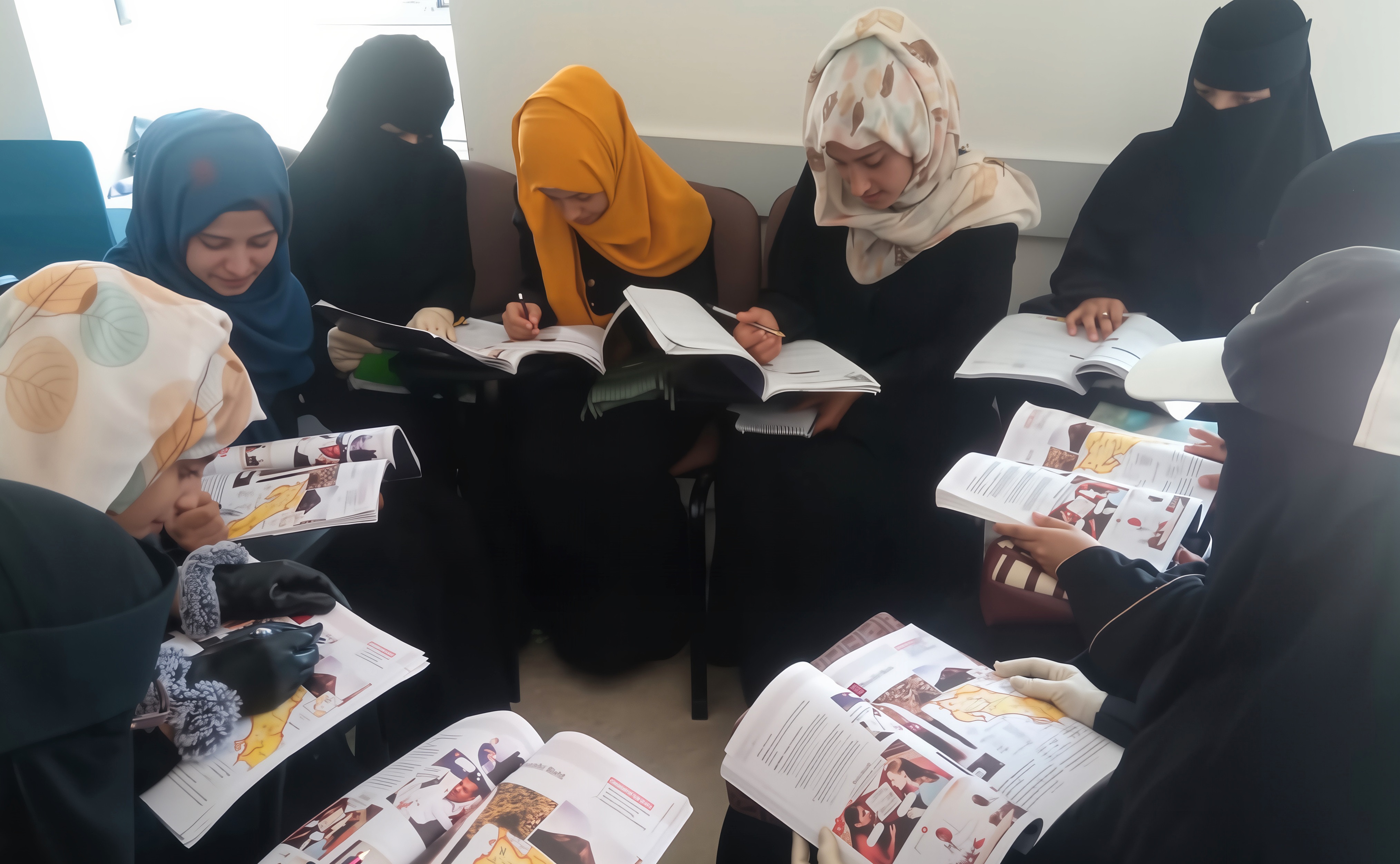
The institute founded by Fatima in Taiz (archive photo)
Last updated on: 22-10-2025 at 6 PM Aden Time

|
|
In the depths of Yemen’s countryside, where the scars of war intersect with poverty and isolation, pioneering women have emerged who have broken through the barriers of customs and traditions to lead development and community initiatives.
Khadija Al-Jasri (South24 Center)
In every remote Yemeni village, there is a woman who rises before dawn to water her land or to set up a classroom to teach her neighbors’ daughters how to read. The world may not know their names, but their stories make a real difference in communities exhausted by war and deprivation.
On the International Day of Rural Women, observed annually on October 15, attention is drawn to this group that forms the backbone of agricultural and community development in Yemen, even though they often remain outside the scope of official and institutional concern.
Despite the harsh economic and social conditions, recent years have witnessed the emergence of rural women’s initiatives that transcended traditional boundaries, to open new paths in education, agriculture, infrastructure, and services. Women in villages have proven that development can begin in dusty fields and makeshift classrooms, if determination and willpower exist.
This report highlights examples of these initiatives, discusses the challenges facing rural women, and explores ways to ensure support and sustainability.
Initiators of Change
In the depths of the countryside, where the effects of war intersect with poverty and isolation, pioneering women have emerged who have broken through the barriers of customs and traditions to lead development and community initiatives that restored hope to villages worn down by crises.
From Qatabah District in Al-Dhalea Governorate, Nawal Saleh has led a literacy initiative since 2018 in the village of Al-Jubub. She began by recruiting girls who could read and write to open new classes in neighboring villages, in return for a symbolic fee from the beneficiaries.
Nawal told South24 that the classes are continuing even today, and that 576 women have benefited so far, who are now able to read and write, and recite the Quran.
This initiative, which started from a small room in a rural home, gradually transformed into a living model of the will for change, instilling in the community the conviction that education is the first step toward liberation from poverty and dependency.
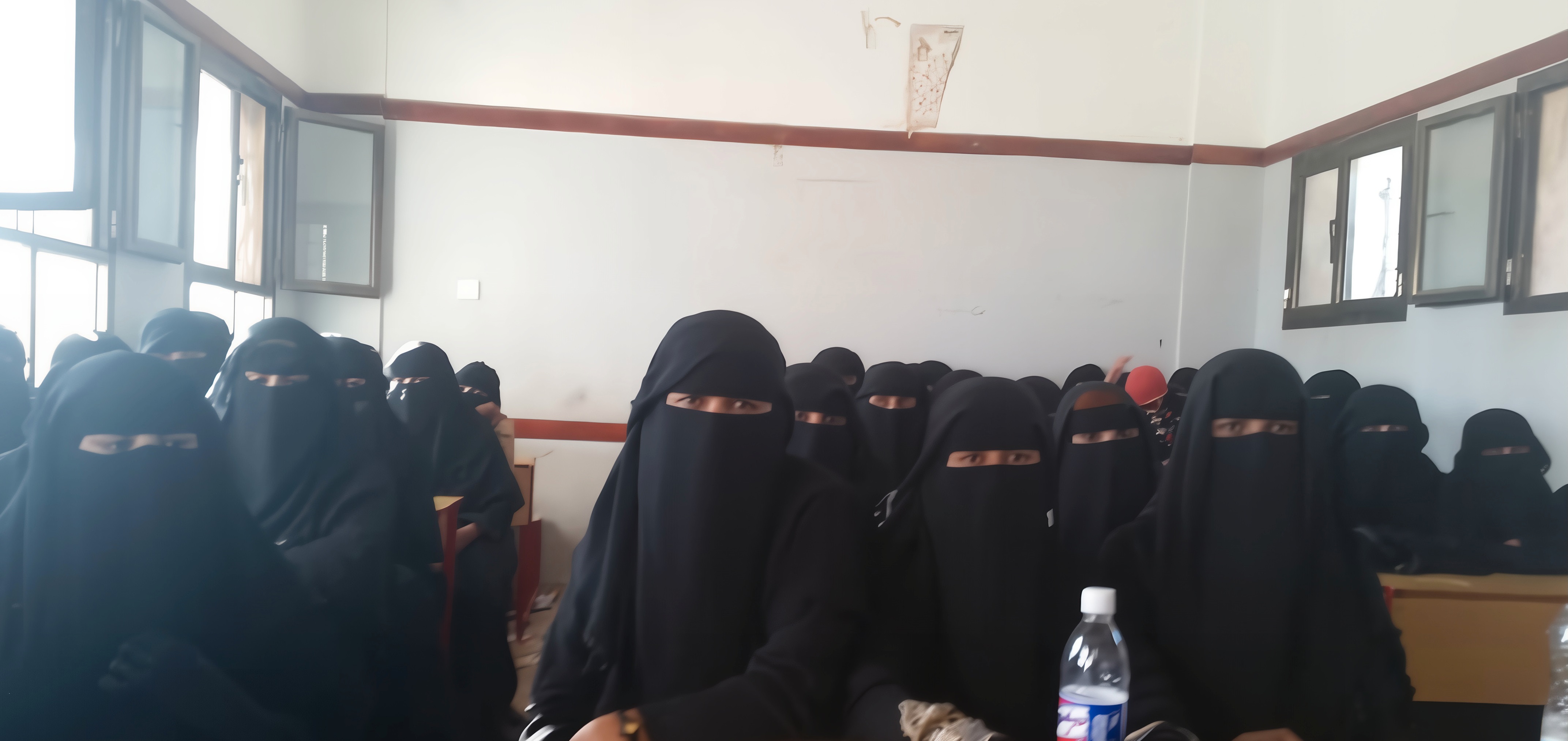
Rural women benefiting from the educational program launched by Nawal (Archive Photo)
In the Al-Miyouh area of Khanfar District in rural Abyan, Asrar Haidara embarked on an exceptional experience in community work. She began with leadership of the Irrigation Water Users Association in the area, and has extended it to initiatives aimed at improving agricultural conditions.
For years, Asrar launched a series of initiatives to serve her community, the most notable of which was the removal of Sissaban shrubs that obstructed floodwater flow in irrigation canals. This was carried out in cooperation with the Food and Agriculture Organization (FAO), which supported the employment of 200 young women and men under the “Cash-for-Work” program.
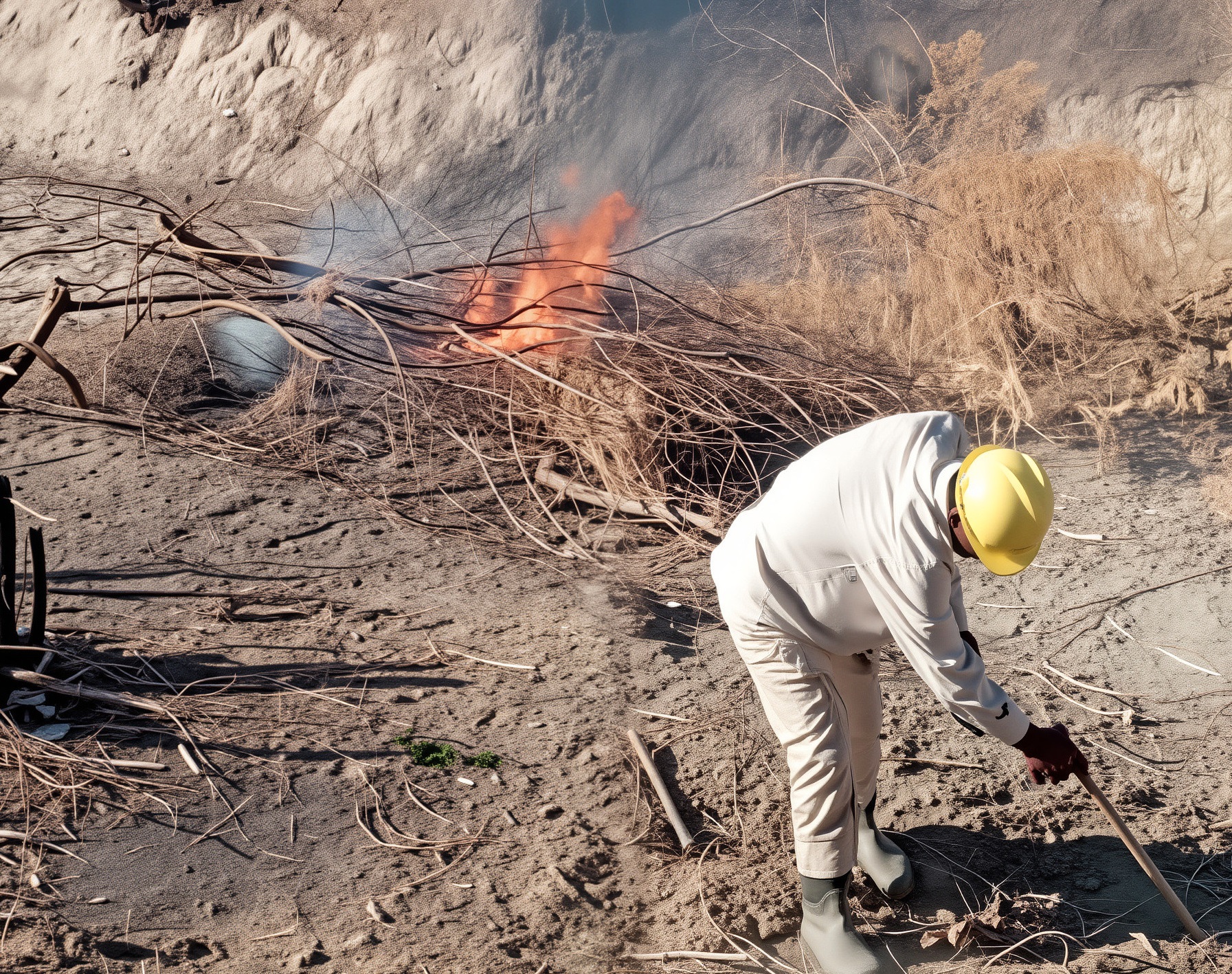
The initiative to remove Sissaban shrubs launched by Asrar (Archive Photo)
Alongside these developmental initiatives, Asrar worked as a coordinator for internally displaced persons (IDPs), helping to secure land for a camp that accommodated 60 displaced families from conflict-affected areas in Hodeidah Governorate. She also followed up on their needs for food, water, and solar energy.
With support from organizations, Asrar launched literacy classes and sewing courses for displaced women, providing them with a source of income and an opportunity to integrate into the host community. These efforts, she says, were not easy in a poor and conservative environment, but they succeeded in “stirring stagnant waters” and building bridges of trust between residents and supporting institutions.
In rural Lahj Governorate, Basma Ali emerged as another example of rural women’s initiatives targeting infrastructure. In July 2024, she spearheaded a campaign to pave the Aqaba road leading to the village of Al-Hujaymah in Al-Qubaytah District, after it had become nearly impassable during the rainy season.
Basma also participated in the renovation of Abbas School, which serves several villages in the same area, and contributed to a local road-clearing campaign that facilitated the movement of hundreds of school students in nearby villages.
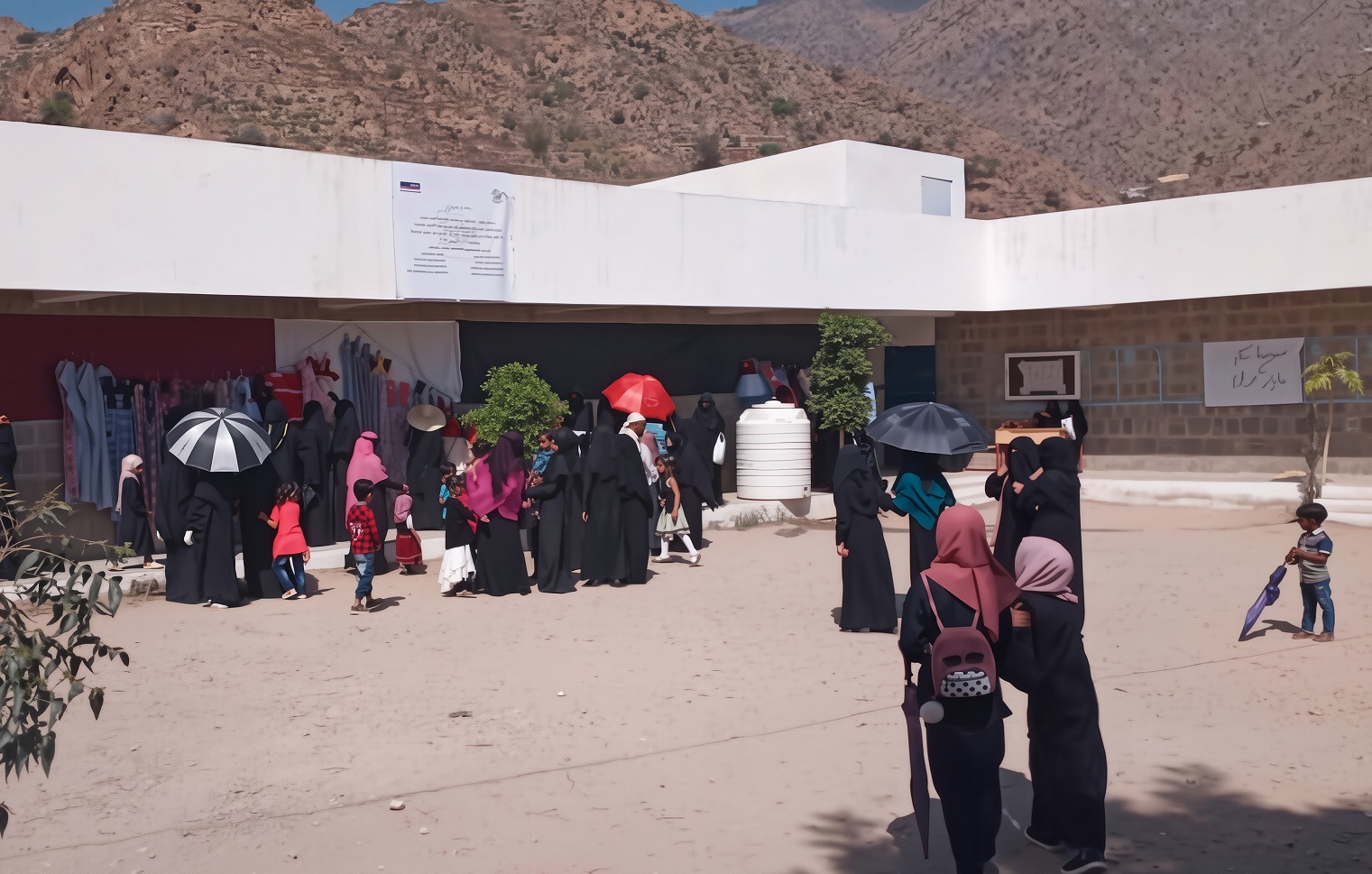
Abbas rural school, which Basma contributed to renovating (Archive Photo)
In rural Taiz, a young woman, Fatima Al-Huraibi, presented a different model of women’s empowerment through education and technology. In 2018, she founded an institute to teach rural girls computer skills and vocational training, helping to open new horizons for young women deprived of university education or job opportunities.
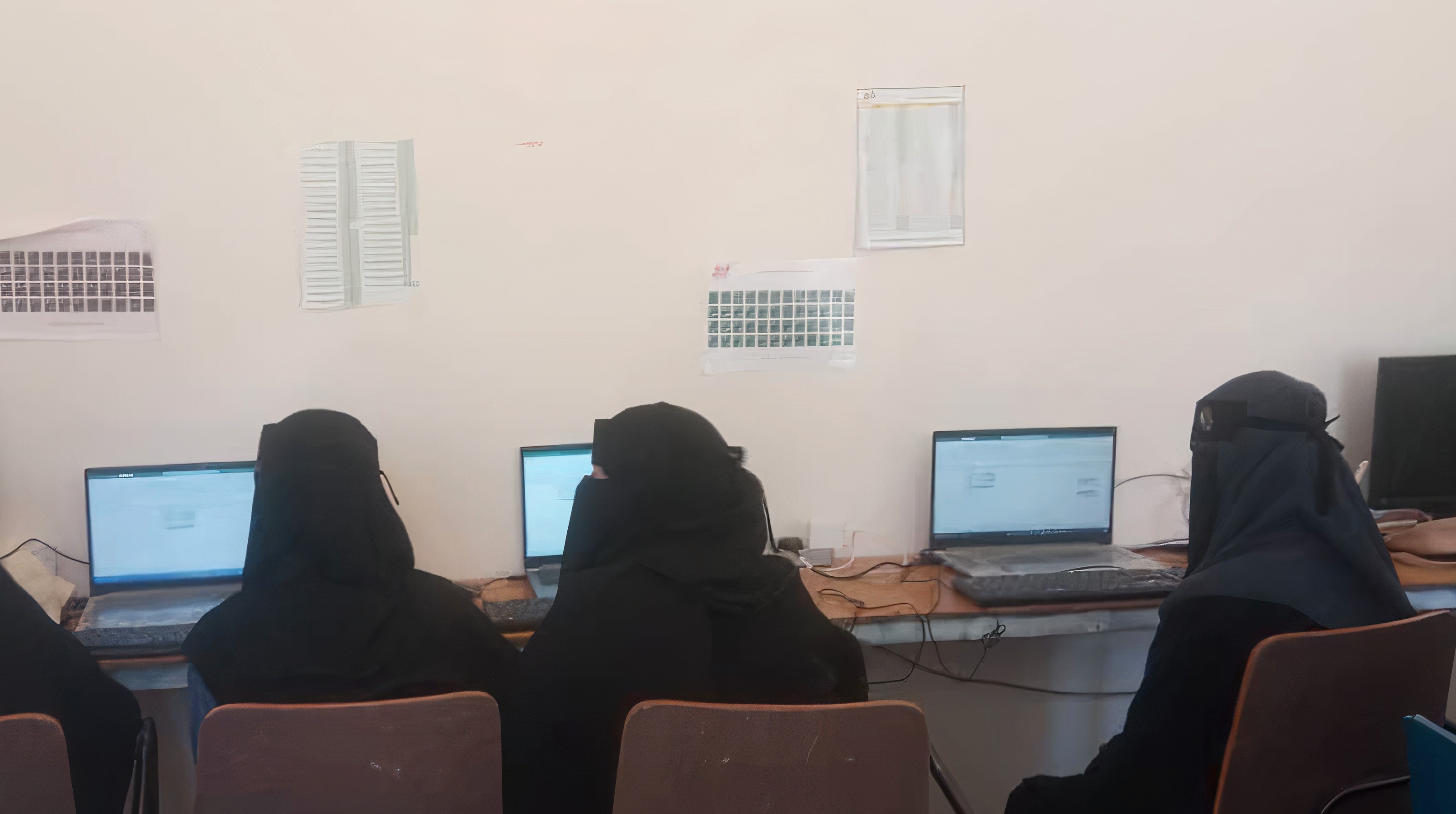
The institute founded by Fatima in Taiz (Archive Photo)
In 2023, she also launched a home-gardening initiative to support women agriculturally and economically, training them to grow vegetables in their household yards.
These women-led initiatives demonstrate how Yemeni rural women have managed to create spaces for development in the absence of the state, redefining their role in society -- from recipients of aid to providers of solutions. But what are the challenges and constraints they had to face?
Challenges and Constraints
The path of such rural women’s initiatives has not been easy. Yemen’s rural environment --burdened by poverty, scarce resources, and the weight of traditions -- has made community work by women a daily challenge, requiring courage and perseverance.
Asrar Haidara from Abyan said her initiatives faced “objections from some residents during the selection of limited labor slots for the Cash-for-Work project, and rejection of women’s participation in joint activities.” She explained that she overcame this barrier by organizing work in two shifts: “men in the morning and women in the afternoon,” noting that this arrangement “gradually achieved social acceptance.”
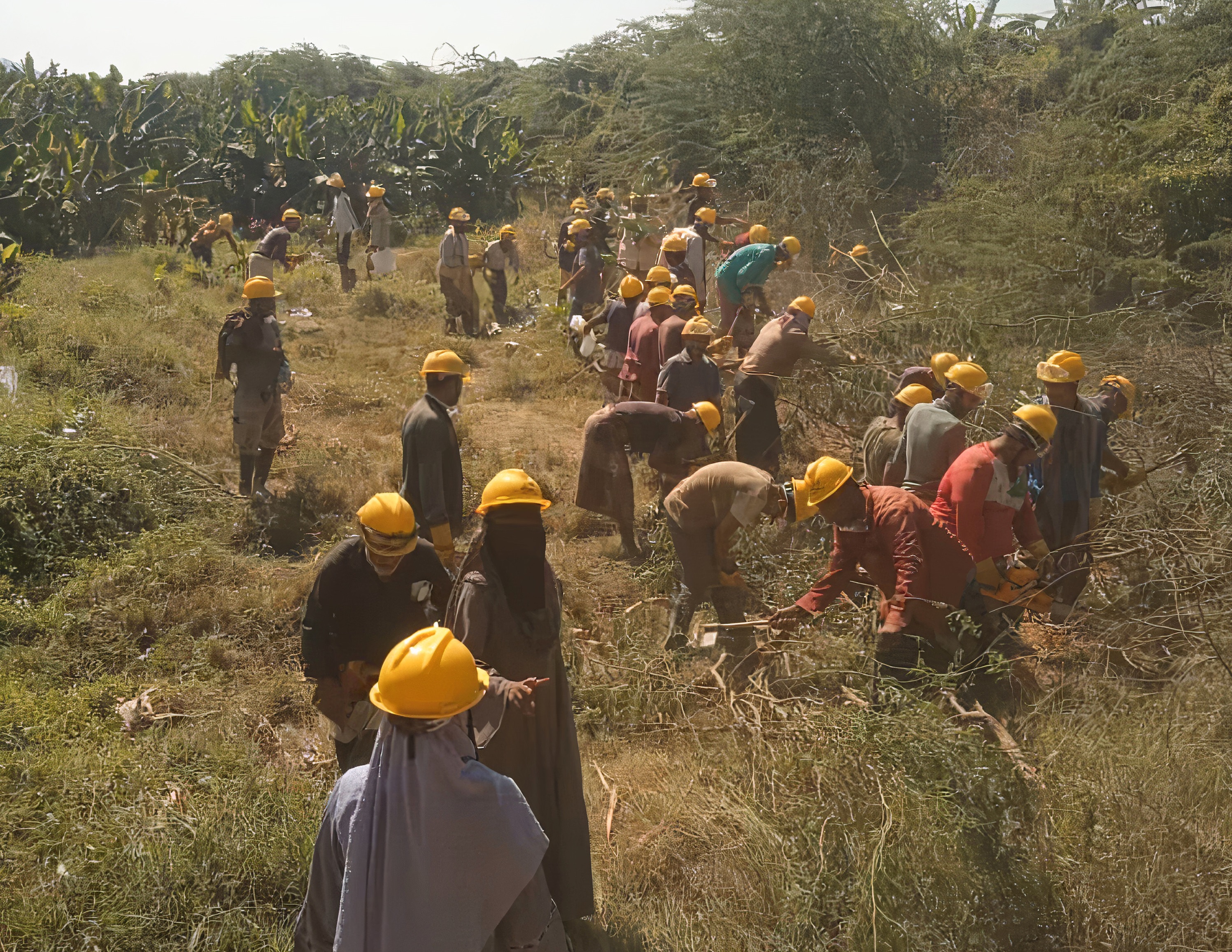
Rural women and men participating in the Cash-for-Work project supervised by Asrar in her area in Abyan (Archive Photo)
She added confidently: “Being a woman at the head of the Irrigation Water Users Association had triggered attempts to undermine my work, but I insisted on enforcing rules and regulations.”
Zaida Al-Bakri, Director of the Women’s Department at the Ministry of Social Affairs, told South24 that “despite their success, rural women’s initiatives are beset with challenges like weak funding, lack of sustainable support, and insufficient technical and vocational training, all of which have affected production quality and project continuity.”
She added that the lack of awareness about the importance of women’s initiatives in some rural areas “reduces effective participation, particularly given the difficulty of accessing remote villages and the absence of basic services.”
She believes that “the absence of coordination between supporting entities and local institutions leads to duplication of efforts and weakens actual impact on the ground.” These challenges, in her view, show that the success of these initiatives “was not the result of abundant resources, but rather the fruit of daily perseverance and a growing community awareness, notwithstanding the constraints.”
Social Impact
Despite the difficulties, the impact of these initiatives has been evident in improving education, agriculture, infrastructure, and in strengthening the spirit of cooperation and community responsibility.
On this, social researcher Dr. Salah Al-Haqb said: “Community initiatives, especially cooperatives in agriculture, water, and roads, are an extension of a long history of collective work that built mountain terraces and dams, expanded agricultural land, and improved production.”
He added to South24: “This resilient and proactive rural spirit, led by women, is the key to sustainable development and the path to strengthening resilience in the face of crises.”
For her part, Bushra Al-Saadi, head of the Together We Rise Foundation for Women and Child Care in Abyan, noted that “women-led community initiatives have had tangible effects on people’s lives, as they did not stop at providing temporary services, but planted the spirit of cooperation and sustainable responsibility.”
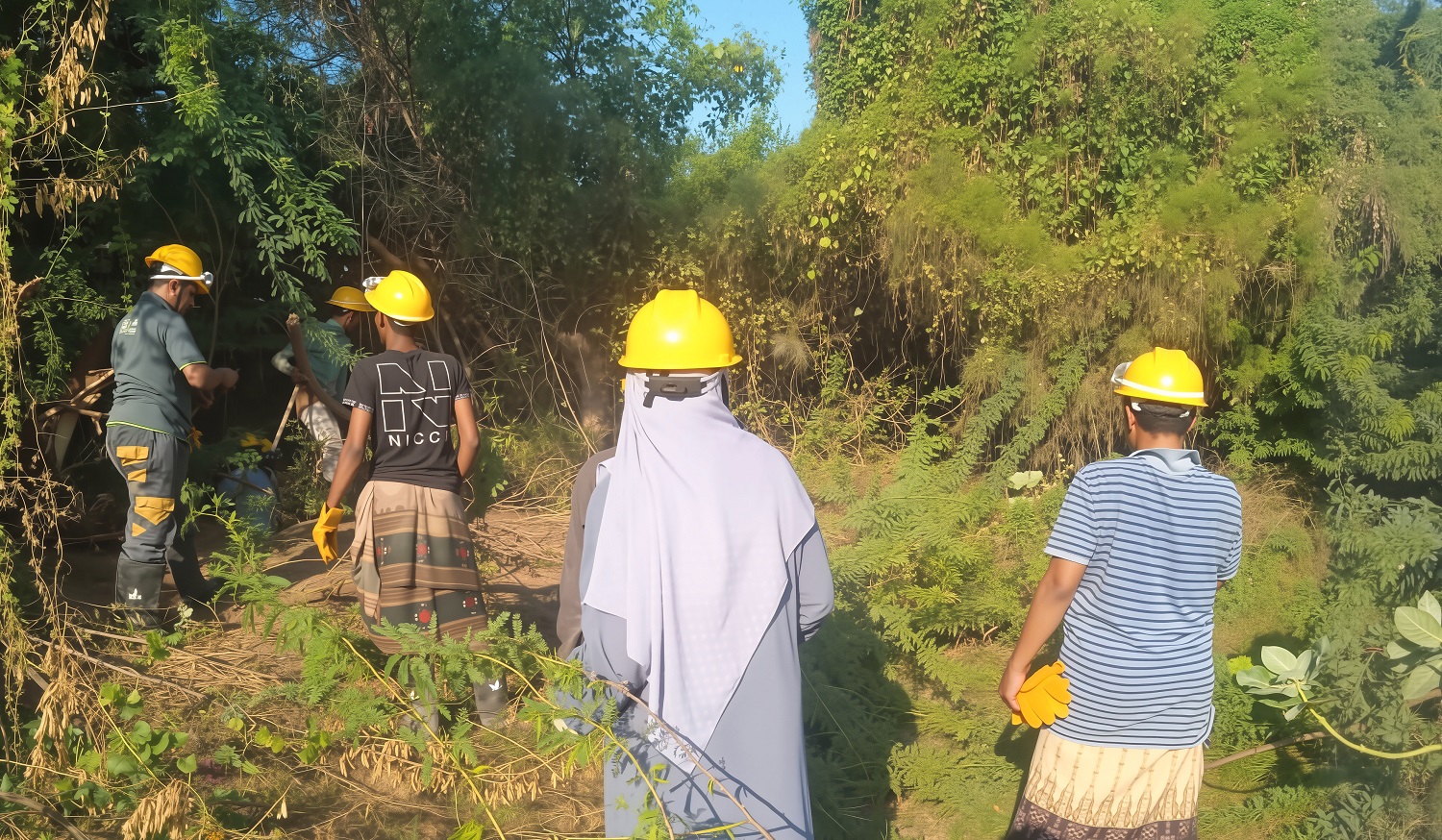
Rural women and men taking part in the Cash-for-Work project supervised by Asrar in her area in Abyan (Archive Photo)
She added: “I have seen women start small businesses after simple training, and young people become active contributors in their communities. This is the true empowerment that creates change --extending from the individual to the family and then to society.”
Al-Saadi believes these projects have helped “strengthen social relations, reduced conflicts, and created safe spaces for dialogue between residents, local authorities, and civil society organizations.”
Zaida Al-Bakri also emphasized that “these initiatives have contributed to empowering women and raising community awareness of their role as partners in development, boosting the participants’ self-confidence and encouraging them to continue giving.”
The Need for Support and Sustainability
Voices from the field and institutions agree that the sustainability of these initiatives depends on integrated support that goes beyond funding.
Zaida Al-Bakri said: “Rural women still need financial, technical, and moral support to ensure the continuity of initiatives and expand their impact. Support must include training, capacity-building, and the provision of tools to improve output quality.”
She confirmed that the Ministry of Social Affairs “is working to provide technical supervision, coordinate with donors, and facilitate procedures to strengthen community partnership.”
Bushra Al-Saadi described support as “a necessity for stability, not a luxury.”
She said: “Despite the human potential in rural areas, particularly in Abyan, these regions suffer from weak services and lack of job opportunities. With every suspension of funding, people’s confidence in themselves declines, and frustration returns.”
The stories of Nawal, Asrar, Basma, Fatima, and other rural women in Yemen reveal that change does not require vast resources as much as it requires determination and vision. In the absence of the state and the weakness of institutions, individual will and community initiatives become the first seeds of development, and rural women have proven more than anyone else their ability to make those seeds grow, even amid drought and marginalization.
On the occasion of the International Day of Rural Women, Yemeni rural women remain the cornerstone of any process of development and progress, given their wide and essential roles in society. Highlighting these inspiring models is an important step toward mainstreaming resilience and hope.